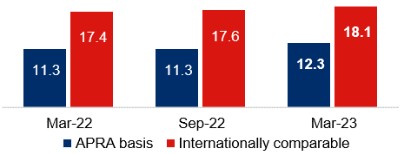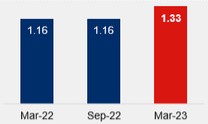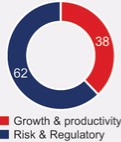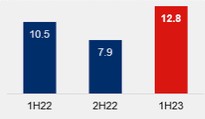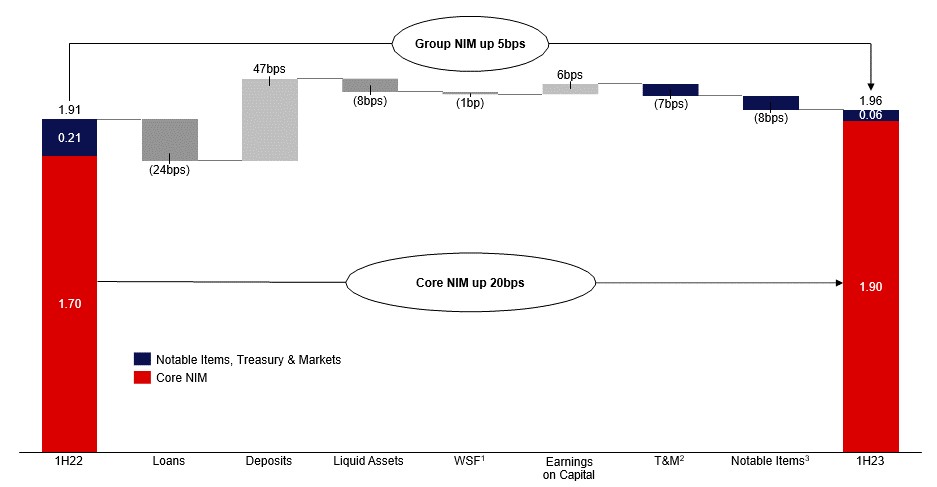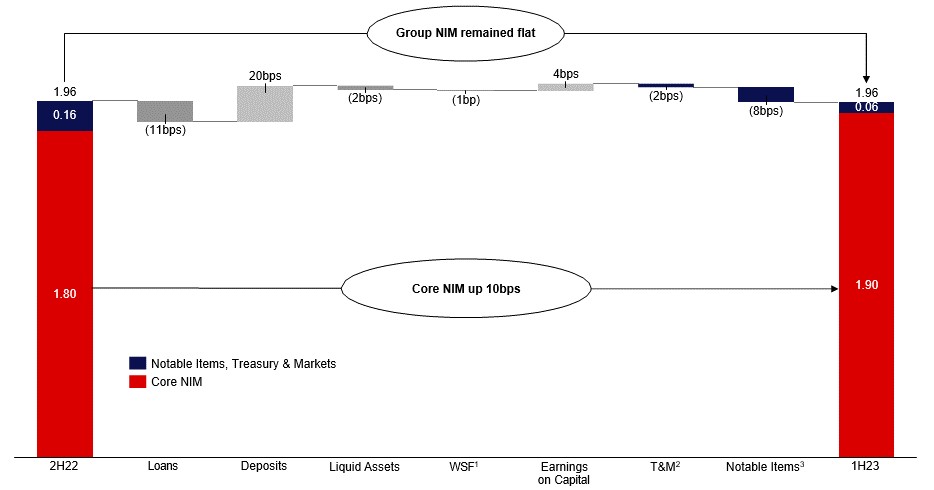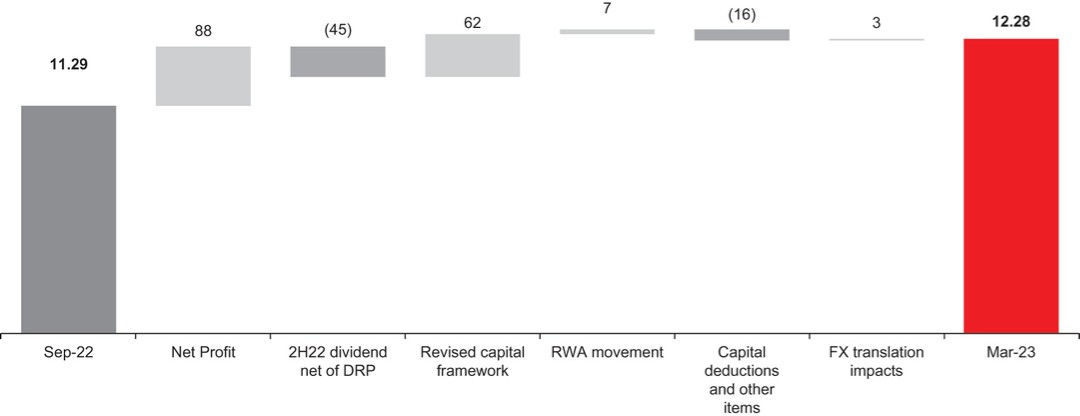The failure to comply with financial crime obligations has had, and could have further, adverse effects on our business and reputation
The Group is subject to anti-money laundering and counter-terrorism financing (AML/CTF) laws, anti-bribery and corruption laws, economic and trade sanctions laws and tax transparency laws in the jurisdictions in which it operates (Financial Crime Laws). These laws can be complex and, in some circumstances, impose a diverse range of obligations. As a result, regulatory, operational and compliance risks are heightened.
Financial Crime Laws require us to report certain matters and transactions to regulators (such as international funds transfer instructions, threshold transaction reports and suspicious matter reports) and ensure that we know who our customers are and that we have appropriate ongoing customer due diligence in place. The failure to comply with some of these laws has had, and in the future could have, adverse impacts for the Group.
The Group operates within a landscape that is constantly changing, particularly with the emergence of new payment technologies, increased regulatory focus on digital assets (e.g. cryptocurrency), increasing reliance on economic and trade sanctions to manage issues of international concern, and the rapid increase of ransomware and cyber extortion attacks. These developments bring with them new financial crime risks for the Group (as well as other risks), which may require adjustments to the Group’s systems, policies, processes and controls.
There has been, and continues to be, a focus on compliance with financial crime obligations, with regulators globally commencing investigations and taking enforcement action for identified non-compliance (often seeking significant penalties). Further, due to the Group’s scale of operations, an undetected failure or the ineffective implementation, monitoring or remediation of a system, policy, process or control (including a regulatory reporting obligation) has resulted, and could in the future result, in a significant number of breaches of AML/CTF or other financial crime obligations. This in turn could lead to significant financial penalties and other adverse impacts for the Group, such as reputational damage and litigation risk.
While the Group has systems, policies, processes and controls in place designed to manage its financial crime obligations (including reporting obligations), these have not always been, and may not in the future always be, effective. This could be for a range of reasons including, for example, a deficiency in the design of a control or a technology failure or a change in financial crime risks or typologies. Our analysis and reviews, in addition to regulator feedback, have highlighted that our systems, policies, processes and controls are not always operating satisfactorily in a number of respects and require improvement. We continue to have an increased focus on financial crime risk management and, as such, further issues requiring attention have been identified and may continue to be identified.
Although the Group provides updates to AUSTRAC, the ATO, BPNG, RBNZ and other regulators on its remediation and other program activities, there is no assurance that those or other regulators will agree that its remediation and program update activities will be adequate or effectively enhance the Group’s compliance programs.
If we fail to comply with our financial crime obligations, we have faced, and could in the future face, significant regulatory enforcement action and other consequences (as discussed in the risk factor entitled ‘We have been and could be adversely affected by failing to comply with laws, regulations or regulatory policy’) and increased reputational risks (as discussed in the risk factor entitled ‘Reputational damage has harmed, and could in the future harm, our business and prospects’). There is additional information on financial crime matters in the ‘Significant developments’ section in the Directors’ report in this Interim Financial Results Announcement.
Reputational damage has harmed, and could in the future harm, our business and prospects
Reputational risk arises where there are differences between stakeholders’ current and emerging perceptions, beliefs and expectations and our past, current and planned activities, processes, performance and behaviours.
There are various potential sources of reputational damage. For example, where our actions (or those of our contractors, agents, authorised representatives and credit representatives) cause, or are perceived to cause, a negative outcome for customers, shareholders, stakeholders or the community. Reputational damage could also arise from the failure to effectively manage risks, failure to comply with legal and regulatory requirements, enforcement or supervisory action by regulators, adverse findings from regulatory reviews, failure or perceived failure to adequately prevent or respond to community, environmental, social and ethical issues and cyber incidents, and inadequate record-keeping, which may prevent Westpac from demonstrating that, or determining if, a past decision was appropriate at the time it was made. We are also exposed to contagion risk from incidents in (or affecting) other financial institutions and/or the financial sector more broadly.
Westpac also recognises the potential reputational consequences (together with other potential commercial and operational consequences) of failing to appropriately identify, assess and manage environmental, social and governance related risks, or to respond effectively to evolving standards and stakeholder expectations. Our reputation could also be adversely affected by the actions of customers, suppliers, contractors, authorised representatives, credit representatives, joint-venture partners, strategic partners or other counterparties.
Failure, or perceived failure, to address issues that could or do give rise to reputational risk, has created, and could in the future create, additional legal risk, subject us to regulatory investigations, regulatory enforcement actions, fines and penalties or litigation or other actions brought by third parties (including class actions), and the requirement to remediate and compensate customers, including prospective customers, investors and the market. It could also result in the loss of customers or restrict the Group’s ability to efficiently access capital markets. This could adversely affect our business, prospects, financial performance or financial condition.


